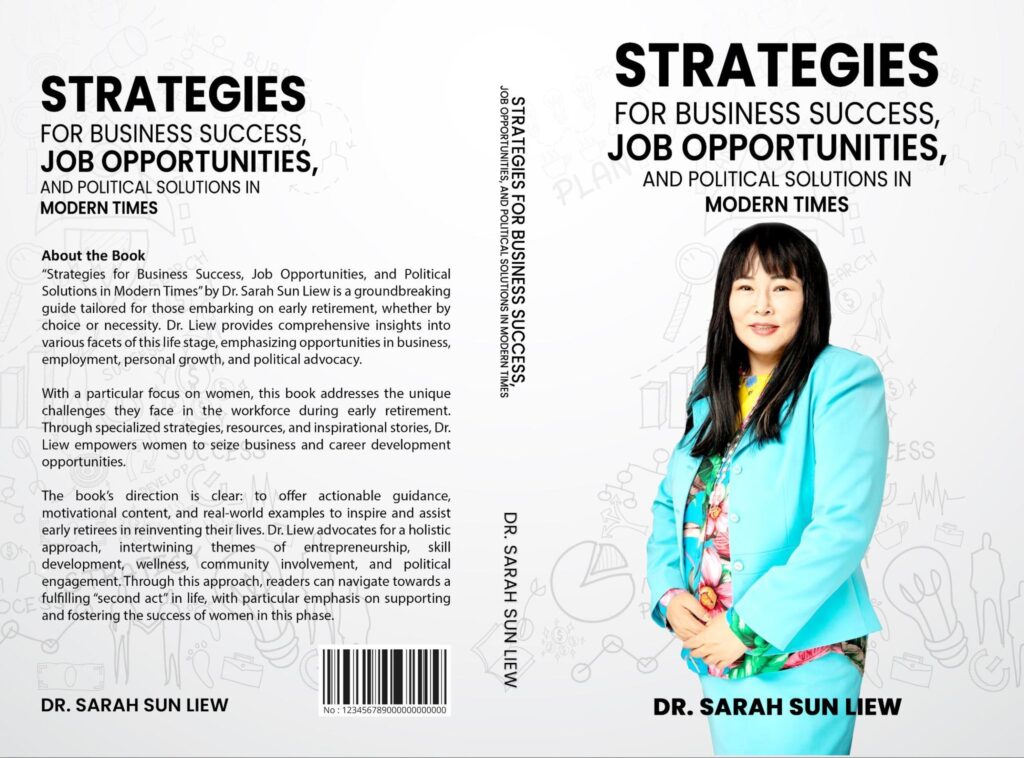By: Meridian Beverly Hills Investment & Legal Group
In her book, The Future-Forward CEO: Embracing Change in the Digital Age, Dr. Sarah Sun Liew delves into the importance of ethical influence in leadership. Ethical influence involves guiding others while respecting their autonomy, ensuring that decisions prioritize integrity and consider the best interests of all involved. This article examines how leaders can use ethical influence to make decisions that align with their values, avoid manipulation, and build trust, while ethically leveraging cognitive biases to enhance outcomes.
The Importance of Ethical Influence

Photo Courtesy: Meridian Beverly Hills Investment & Legal Group
Ethical influence is crucial to leadership as it ensures that decisions are made based on fairness, respect, and transparency. Leaders who practice ethical influence embody the following principles:
- Respecting Autonomy: Ethical influence means honoring the right of individuals to make informed decisions independently. Leaders who respect autonomy avoid coercion and manipulation, allowing team members to make their own choices. Dr. Liew emphasizes that respecting autonomy builds trust, encourages engagement, and fosters a motivated team.
- Promoting Well-being: Leaders using ethical influence consider the impact of their choices on the well-being of their teams and stakeholders. This approach involves decisions that contribute to a supportive work environment and ensure the best interests of all involved are safeguarded.
- Maintaining Integrity: Integrity is a cornerstone of ethical influence. Leaders need to ensure that their actions align with core values and ethical standards. Dr. Liew notes that maintaining integrity builds credibility and reinforces trust, essential for effective leadership.
Providing Balanced Information
An essential component of ethical influence is providing balanced information, enabling teams to make informed decisions with a full understanding of relevant factors. Leaders can achieve this through:
- Avoiding Selective Disclosure: Leaders should avoid only presenting information that supports a specific agenda, instead providing a complete perspective. Dr. Liew highlights that transparency prevents the perception of manipulation and fosters informed decision-making.
- Encouraging Open Dialogue: Open dialogue allows for sharing diverse viewpoints. Leaders who create an environment where team members can freely express insights and concerns help ensure that all perspectives are considered, reducing biases in decision-making.
- Providing Context: Contextualizing information is vital for understanding. Leaders should explain how data relates to decision-making, helping team members grasp implications and make well-informed choices.
Avoiding Manipulation

Photo Courtesy: Meridian Beverly Hills Investment & Legal Group
Manipulation involves deceptive influence for self-serving purposes. Ethical leaders avoid manipulation by adhering to these principles:
- Honesty and Transparency: Ethical influence demands open and truthful communication, without deceit. Dr. Liew emphasizes that honesty fosters trust and nurtures positive working relationships.
- Respecting Opinions: Ethical leaders respect others’ viewpoints, encouraging discussions and considering alternative perspectives. This respect discourages manipulation, fostering inclusivity and fair decision-making.
- Providing Autonomy in Decision-Making: Leaders should ensure that team members can make decisions based on available information without pressure. This approach supports free, independent decision-making.
Leveraging Cognitive Biases Ethically
Cognitive biases, when understood and used responsibly, can enhance decision-making without compromising ethics. Dr. Liew explores how leaders can leverage these biases to promote informed choices:
- Framing Information Effectively: Ethical framing presents information in a way that clarifies its importance. Leaders can frame information ethically by presenting it transparently, allowing team members to make sound judgments based on the implications of their choices.
- Using Anchoring Wisely: Anchoring provides reference points for decision-making. Leaders can ethically use anchoring by setting accurate, realistic expectations, helping guide decision-making without misleading others.
- Encouraging Reflective Thinking: Leaders can promote a culture of critical thinking by encouraging teams to reflect on the consequences of decisions. Dr. Liew notes that reflective thinking helps recognize biases, fostering more thoughtful decision-making.
- Promoting Accountability: Accountability involves holding individuals responsible for their actions. Leaders should promote transparency in decision-making and ensure team members understand the consequences, reinforcing ethical behavior and fostering a culture of integrity.
Building Trust Through Ethical Influence
Building trust is a fundamental outcome of ethical influence. Leaders who practice ethical decision-making and transparent communication cultivate a foundation of credibility and trust. Here are key ways leaders can build trust:
- Consistency in Behavior: Consistent actions reinforce reliability. Leaders should align their behaviors with stated values, as Dr. Liew explains, consistency is key to establishing trustworthiness.
- Demonstrating Empathy: Empathy involves understanding and addressing others’ needs. Leaders who listen actively and respond thoughtfully build rapport and trust, making it easier to guide teams ethically.
- Recognizing Contributions: Acknowledging team members’ achievements fosters a positive work environment and strengthens trust. Dr. Liew suggests that recognizing contributions reinforces respect and appreciation within teams.
- Being Transparent: Open communication fosters trust. Leaders who are transparent about decisions and processes ensure team members feel informed and valued.
Dr. Sarah Sun Liew’s Insights
In The Future-Forward CEO, Dr. Sarah Sun Liew provides an in-depth exploration of ethical influence, illustrating how it serves as a guiding principle for responsible decision-making. She emphasizes that ethical influence is integral to effective leadership, allowing leaders to balance power and integrity by placing others’ well-being at the forefront.
Dr. Liew’s work, celebrated for its relevance and depth, has been featured in over 500 publications globally, including The Wall Street Journal, Yahoo Finance, and Fox News. Her perspectives on leadership, ethics, and strategic thinking have reached a diverse audience of professionals, inspiring them to lead with accountability and transparency.
In recognition of her contributions, Dr. Liew was awarded the Menorah of Peace Award from The Institute of Noahide Code in 2023, honoring her dedication to promoting peace and ethical leadership. Additionally, she was named one of the “Top 15 Entrepreneurs Shaping the Business World” by International Business Times, celebrating her impactful work in real estate and financial technology.
Media Presence and Engagement
Dr. Liew’s influence extends beyond her writing, as she frequently collaborates with major media outlets to amplify her message. Through media presence with CEO Weekly, Los Angeles Wire, and Voyage New York, she shares her insights on ethical influence and decision-making with a global audience. These collaborations underscore her commitment to ethical leadership, encouraging leaders worldwide to adopt transparent and values-driven approaches in their organizations.
Conclusion
Ethical influence is essential for effective leadership, ensuring decisions are made with respect, integrity, and transparency. In The Future-Forward CEO: Embracing Change in the Digital Age, Dr. Sarah Sun Liew explores how leaders can harness ethical influence to guide responsible decision-making.
By providing balanced information, avoiding manipulation, and leveraging cognitive biases ethically, leaders can make more informed, equitable choices. Building trust through consistent behavior, empathy, and transparency further enhances ethical influence, fostering productive and trustworthy team dynamics. As leaders navigate the complexities of today’s digital landscape, prioritizing ethical influence will be key to creating positive work environments, driving success, and maintaining integrity.
Published by: Annie P.













